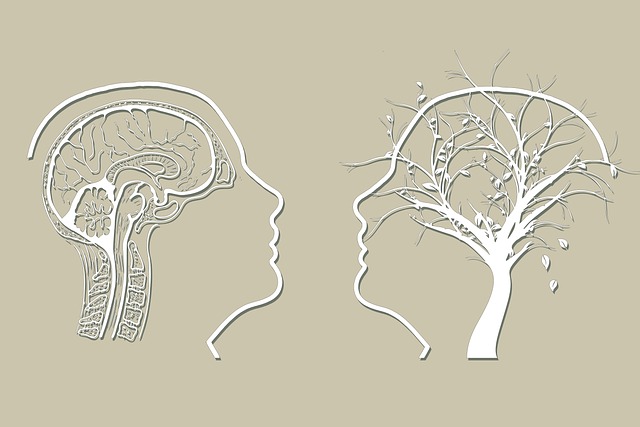Mental wellness journaling is a powerful therapy for children, offering a creative and safe space to express thoughts and emotions. Regular journaling promotes emotional regulation, enhances self-esteem, and prevents burnout by teaching children active mental health management. With prompts encouraging honest expression, it fosters inner strength, boosts self-belief, and aids in early risk assessment. Integrating journaling into daily routines can significantly enhance mental wellness, with dedicated time fostering reflection, progress tracking, and achievement celebration for improved resilience. Community outreach programs can leverage journaling alongside mindfulness or coaching to support children's mental health journeys, encouraging self-expression and open communication.
“Unleash the power of self-reflection and expression with Mental Wellness Journaling—a transformative exercise for children. This article guides parents and educators through the process, offering insights into its profound impact on fostering healthy self-esteem in young minds. From creating a nurturing environment to providing effective prompts, we explore strategies to make journaling a daily habit. Discover how this simple practice can serve as a therapeutic tool, empowering children to navigate their emotions and build resilience. Boosting self-esteem starts here—one written word at a time.”
- Understanding Mental Wellness Journaling for Children
- The Impact of Journaling on Building Self-Esteem
- Creating a Safe and Supportive Environment for Journaling
- Types of Prompts to Encourage Therapeutic Writing
- Integrating Journaling into Daily Routines for Consistency
Understanding Mental Wellness Journaling for Children

Mental wellness journaling can be a powerful tool to support children’s emotional well-being and development. For kids, it offers a creative outlet to express their thoughts, feelings, and experiences in a safe and private manner. This practice helps them develop self-awareness, fostering an understanding of their emotions and encouraging healthy coping mechanisms. By documenting their day-to-day lives, children can learn to identify patterns, manage stress, and enhance their overall mental resilience.
Journaling therapy for children is not just about writing; it can include drawings, collages, or even playdough sculptures as valid forms of expression. This approach caters to different learning styles and allows kids to engage in activities that boost self-esteem, improve emotional regulation, and serve as an outlet for processing traumatic events or everyday stressors. Moreover, regular journaling promotes burnout prevention by teaching children healthy ways to manage their mental health and fostering a sense of agency over their emotional lives.
The Impact of Journaling on Building Self-Esteem

Journaling has long been recognised as a powerful tool for personal growth and self-discovery, especially when it comes to enhancing mental wellness. For children, this practice can be transformative in building self-esteem, a cornerstone of overall well-being. By putting pen to paper, kids can explore their thoughts and emotions in a safe and private space, fostering a deeper sense of self-awareness. This process encourages them to reflect on their achievements, no matter how small, which can significantly boost their confidence and belief in themselves.
Regular journaling helps children develop inner strength by providing an outlet for expressing doubts, fears, and even failures without judgment. It allows them to challenge negative thoughts and replace them with more positive ones, thereby improving emotional regulation. This therapy-like practice can also teach children coping mechanisms to manage stress, anxiety, or anger, promoting a healthier mindset and a more optimistic outlook on life.
Creating a Safe and Supportive Environment for Journaling

Creating a safe and supportive environment is key to encouraging children to engage in mental wellness journaling. This practice should be free from judgment, fostering an atmosphere where young individuals feel comfortable expressing their thoughts and emotions honestly. Parents or caregivers can play a significant role by acting as reliable supports, ensuring confidentiality, and modeling the importance of self-care through their own journal entries. A dedicated, quiet space with minimal distractions can also help create a sense of safety, allowing children to focus on their inner world and develop their inner strength.
Encouraging open dialogue about journaling’s benefits, such as improving emotional intelligence and preventing burnout, can further motivate children. Help them understand that this exercise is not merely writing but a form of self-exploration and therapy. By framing it as a journey towards better mental health and increased self-esteem, you normalize the process and make it more appealing. This approach aligns with various therapeutic techniques used in child psychology, emphasizing the power of expression for healing and growth.
Types of Prompts to Encourage Therapeutic Writing

Journaling prompts play a pivotal role in guiding children towards a healthier mental state and cultivating self-esteem. These prompts should be carefully crafted to encourage open and honest expression, allowing young individuals to explore their thoughts and emotions. For instance, starting with simple questions like “What made me happy today?” or “How did I feel when…?” can initiate the process of self-reflection. More advanced prompts could delve into specific aspects of mental wellness, such as mood management—prompting children to describe a time they felt anxious and strategies they used to cope.
Building inner strength is another crucial element; prompts like “What are my unique strengths?” or “How do I handle challenges?” can help foster self-belief and resilience. These exercises also offer mental health professionals an opportunity for risk assessment by identifying potential issues early on. Through regular therapeutic writing, children learn to articulate their experiences, gain valuable insights, and develop effective coping mechanisms, all of which contribute to enhanced mood management and overall well-being.
Integrating Journaling into Daily Routines for Consistency

Integrating journaling into daily routines can significantly enhance mental wellness, especially for children engaging in therapy to boost self-esteem. Consistency is key; setting aside a dedicated time each day for this practice allows individuals to develop a healthy habit that promotes reflection and emotional awareness. It’s not just about writing down feelings but also tracking progress over time, identifying patterns, and celebrating achievements, all of which contribute to improved mental resilience.
For families looking to support their children’s mental health journey, incorporating journaling can be an accessible and effective strategy. This simple yet powerful tool encourages self-expression and fosters open communication, enabling parents and caregivers to better understand their child’s emotional landscape. Furthermore, community outreach program implementations that incorporate mindfulness meditation or mental wellness coaching programs development can leverage journaling as a means to strengthen these initiatives, providing children with additional resources for cultivating inner peace and self-acceptance.
Mental wellness journaling can be a powerful tool to support children’s therapy and self-esteem development. By creating a safe space through structured prompts, we encourage young minds to explore their emotions, thoughts, and experiences. This simple yet effective practice fosters self-awareness, enhances emotional intelligence, and provides an outlet for expression. Integrating journaling into daily routines makes it an accessible and consistent way to nurture mental wellness in children, empowering them to take an active role in their emotional well-being.














